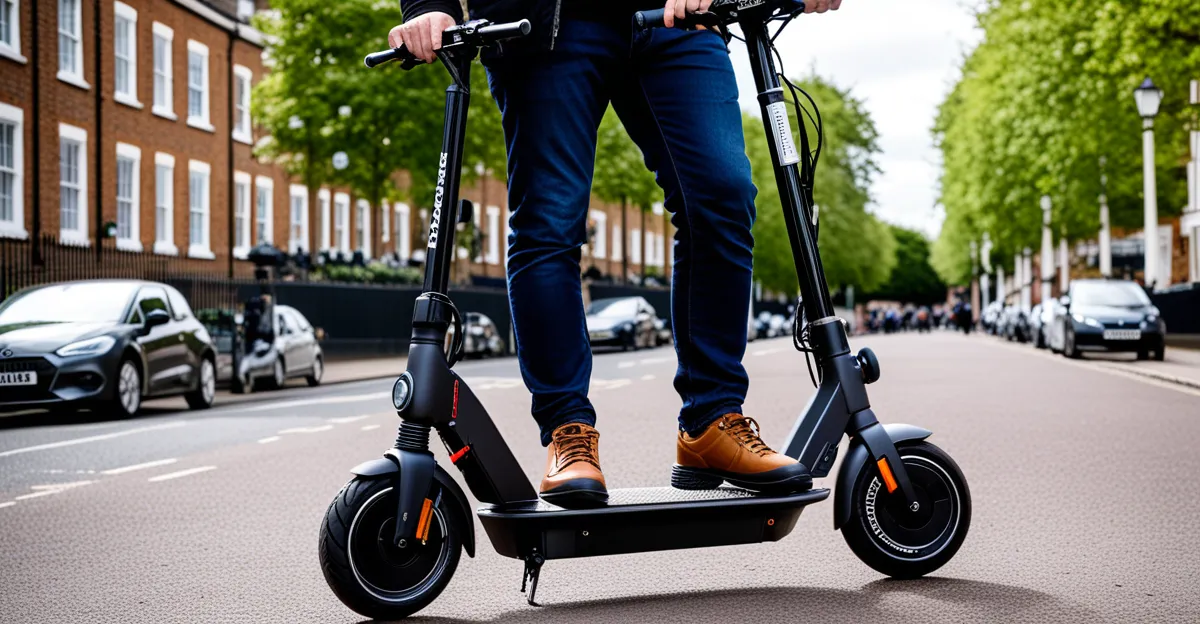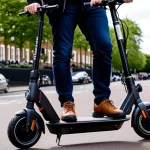Immediate changes to e-scooter regulations in the UK
The 2024 legislation introduces significant e-scooter law updates impacting riders across the UK. A key change is the amendment of permitted zones where privately owned e-scooters can be used legally. Under the new UK regulations, private e-scooters remain illegal on public roads unless part of a government-approved trial scheme. However, there has been an expansion in designated trial zones allowing broader access for rental scooters.
Recent legal changes also tighten speed limits, capping e-scooters at 12.5 mph in approved areas. Moreover, riders must now adhere to stricter identification requirements to enhance enforcement of laws. Notably, the government has mandated clearer signage for trial zones, aiding public awareness and compliance.
Also read : Unveiling the 2023 shifts in uk inheritance tax allowances: essential insights for navigating the changes!
Key dates for these updates include the enforcement of new speed limits beginning in March 2024 and enhanced licensing checks rolled out from June 2024. These timelines align with official governmental announcements aiming to improve safety while fostering wider adoption of e-scooters through legal frameworks.
Understanding these e-scooter law updates is essential for riders to avoid penalties and engage responsibly with evolving UK regulations. Remaining informed will help users navigate the new legal landscape effectively.
In the same genre : Unveiling the dangers of disregarding the uk’s making tax digital plan: essential insights you must discover
Immediate changes to e-scooter regulations in the UK
Recent e-scooter law updates in the UK reflect critical shifts aimed at integrating these vehicles safely into public spaces. The 2024 legislation introduces tighter controls to enhance rider accountability and public safety. Notably, e-scooter riders must now comply with stricter requirements regarding their use on roads and trial zones.
Following official governmental announcements, the legal changes came into effect starting April 2024, with transitional periods extending throughout the year. The updated UK regulations clarify previously ambiguous areas, such as where e-scooters may legally operate and the necessity for compliance with licensing and insurance stipulations.
Officials emphasize that these legal changes are part of an ongoing effort to balance innovation with safety. Riders are advised to stay informed, as new amendments continue to be proposed in response to user feedback and enforcement outcomes. These regulatory advances represent a pivotal moment, positioning the UK to better manage the popular rise in e-scooter use while mitigating risks on roads and pavements.
Immediate changes to e-scooter regulations in the UK
A brief pause for clarity
The 2024 legislation brings robust e-scooter law updates redefining where and how riders can legally operate devices. Private e-scooters remain generally prohibited on public roads unless within government-approved trial zones. These zones have been expanded, reflecting a cautious approach to broader e-scooter integration.
Riders must adapt to new speed limits capped at 12.5 mph in approved areas, a significant legal change aimed at improving safety. From March 2024, stricter speed enforcement begins, while enhanced licensing and identification requirements roll out from June 2024, representing a clear government commitment to tighten oversight under the revised UK regulations.
Official announcements emphasize clarity in signage and rider responsibility to comply with these evolving laws. The government’s phased timeline for these laws balances safety goals with fostering legal e-scooter use. Understanding these 2024 legislation details is vital for users to avoid fines and remain compliant. This approach reflects an ongoing effort to align safety, accessibility, and regulation in the changing urban transport landscape.
Immediate changes to e-scooter regulations in the UK
The 2024 legislation brings crucial e-scooter law updates designed to clarify and tighten restrictions on usage. A central focus is delineating where e-scooters may legally operate, reinforcing the illegality of private e-scooter use on public roads outside government-authorised trial zones. This distinction is key under recent UK regulations and impacts rider behaviour nationwide.
Important legal changes include mandatory identification checks introduced by law enforcement to prevent unauthorized use, alongside new signage requirements marking approved trial zones more clearly. These measures aim to improve compliance and safety by making boundaries transparent for all road users.
Key enforcement dates include speed limit reductions to 12.5 mph, effective March 2024, enhancing control over e-scooter speeds within permitted areas. From June 2024, licensing and identity verification will be rigorously checked at entry points to trial zones.
Official government announcements stress that these e-scooter law updates are part of a broader strategy to integrate this transport mode responsibly. They underline the UK’s commitment to evolving legal changes that balance innovation with public safety. Riders must stay vigilant and informed to navigate the shifting regulatory landscape successfully.
Immediate changes to e-scooter regulations in the UK
New developments within the 2024 legislation introduce critical e-scooter law updates impacting rider behaviour and legal compliance. Central to these updates is the reinforcement of zones where e-scooters are permitted, combined with new enforcement timelines.
From March 2024, speed limits have been capped at 12.5 mph across approved areas, marking a significant legal change designed to boost safety. June 2024 introduces stricter identification and licensing checks, ensuring riders meet updated UK regulations. These staged deadlines reflect the government’s commitment to rigorous but fair implementation.
Recent announcements reiterate that privately owned e-scooters remain prohibited on public roads except within officially designated trial zones. Expansion of these zones allows more rental use under controlled conditions. Public signage improvements accompany this for clearer rider guidance.
The government also highlights ongoing reviews of compliance impacts and encourages riders to remain attentive to forthcoming updates. The harmonised phased implementation of these 2024 legislation aspects aims to balance public safety with practical access, reinforcing responsible e-scooter use in line with evolving UK regulations.
Immediate changes to e-scooter regulations in the UK
The 2024 legislation brings pivotal e-scooter law updates that sharpen the legal framework governing rider behaviour across the UK. Private e-scooters continue to be illegal on public roads except within designated trial zones, which have now expanded. This extension provides greater access for rental scooters while maintaining strict control over private usage.
The government has introduced clearer timelines: from March 2024, speed limits are enforced at a maximum of 12.5 mph in approved zones. Starting June 2024, rider identity verification and licensing checks become mandatory, reflecting rigorous legal changes to curb unlawful use. These controls align with official government announcements promoting public safety and organised scooter integration.
Enhanced signage for trial zones is also a critical aspect of the 2024 legislation, aiming to reduce confusion among riders and law enforcement. Together, these UK regulations represent a balanced approach—encouraging legal e-scooter adoption while safeguarding pedestrian and road user welfare. Staying informed about these updates helps riders comply effectively and avoid penalties under the evolving legal landscape.
Immediate changes to e-scooter regulations in the UK
The 2024 legislation brings notable e-scooter law updates focused on enhancing clarity and compliance for riders. Key recent legal changes include enforcing a max speed limit of 12.5 mph in approved areas, effective from March 2024, to improve safety. Additionally, from June 2024, stricter identification and licensing checks become mandatory, emphasizing rider responsibility under the updated UK regulations.
Government announcements have highlighted expanded trial zones where rental e-scooters may be used legally, though private e-scooters remain prohibited on public roads outside these zones. Enhanced signage accompanies these zones to ensure clear communication about legal use.
The timeline of these updates signals a phased approach, allowing riders time to adapt while signalling stronger enforcement intent. These changes reflect a balance between fostering innovation in urban transport and maintaining public safety. Riders should monitor official communications closely, as further e-scooter law updates are anticipated throughout 2024, shaping the evolving regulatory landscape in line with government priorities.










